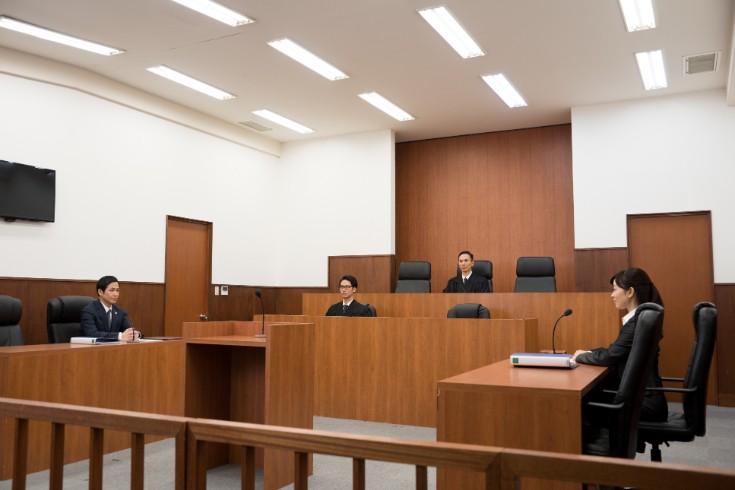Overview and Role Distribution of 'Corporate Organs' in Japanese Company Law

In Japanese Corporate Law, the term “corporate organs” refers to various organizational bodies responsible for decision-making, business execution, and supervision within a company. These organs are essential for the proper functioning and governance of a company. In a joint-stock company, the most fundamental and mandatory organs are the General Meeting of Shareholders and at least one director.
The Japanese Companies Act provides options that allow for flexible design of internal structures according to the size, nature, and business objectives of a company. This enables corporations to choose from the simplest configurations to more complex committee-based companies, depending on their needs.
Fundamental Institutions in Japan: Shareholders and Directors
Shareholders’ Meeting: The Ultimate Decision-Making Body
Roles, Authority, and Types of Resolutions
The shareholders’ meeting is the supreme decision-making body of a joint-stock company and is composed of the company’s shareholders. Its authority is extensive, allowing it to make resolutions on all matters stipulated by the Japanese Companies Act and the company’s articles of incorporation. However, in companies with a board of directors, the authority of the shareholders’ meeting is typically limited to matters explicitly provided for by the Japanese Companies Act or the articles of incorporation.
The main powers of the shareholders’ meeting include decisions related to the establishment of the company, such as the appointment of initial directors and auditors, amendments to the articles of incorporation at the time of establishment, and decisions on the dissolution of the company. In terms of shares, it makes decisions on matters such as the company’s acquisition of its own shares for consideration, acquisition of class shares with full acquisition clauses, and requests for transfer to heirs. Furthermore, regarding institutional matters, it makes decisions on the appointment and dismissal of directors, auditors, accounting advisors, and accounting auditors. As for important business execution decisions, while many are delegated to the directors, in companies without a board of directors, shareholder meeting approval may be required for certain significant matters, such as the disposal of important assets or incurring substantial debt.
The resolutions of the shareholders’ meeting are categorized as ordinary resolutions, special resolutions, and extraordinary resolutions, with the required type of resolution varying depending on the importance of the matter at hand.
Duties and Responsibilities of Shareholders and the Shareholders’ Meeting
The fundamental responsibility of shareholders is ‘limited liability,’ which is limited to the amount of the share subscription price they hold. This means that shareholders are not personally liable for the company’s debts beyond the amount of their investment.
The company’s duties related to the shareholders’ meeting (usually carried out by the directors) include the obligation to convene the shareholders’ meeting in a timely and appropriate manner, which includes sending out the notice of the meeting. There is also a duty to provide shareholders with the necessary explanations regarding the agenda and to create and store the minutes of the meeting.
While the shareholders’ meeting itself does not bear direct responsibility, promoters involved in the establishment of the company, initial directors, and initial auditors may be liable for damages if they neglect their duties related to the establishment, such as insufficient valuation of assets or fictitious contributions.
Directors and Board of Directors: Management and Oversight Under Japanese Corporate Governance
Roles, Authority, and Structure
Directors are the business operators of a company and are responsible for the daily management of its operations. Every joint-stock company in Japan must have at least one director . In companies with a board of directors, the board is composed of all the directors. Its primary roles include making decisions on the execution of the company’s business, supervising the performance of individual directors, and appointing and dismissing the representative director who legally represents the company .
The board of directors cannot delegate the decision-making of specific important business executions to individual directors. This includes the disposition and acceptance of significant assets, incurring substantial debts, appointing and dismissing managers and other key employees, establishing, modifying, or abolishing branches or other significant organizational structures, matters related to the solicitation of corporate bonds, and establishing systems to ensure the execution of duties in compliance with laws and the articles of incorporation . For large companies with a board of directors, the construction of an internal control system to ensure the proper conduct of business and compliance with laws and articles of incorporation is mandatory .
Key Duties: Duty of Care and Fiduciary Duty Under Japanese Corporate Law
The relationship between a company and its directors is based on ‘delegation’. This means that directors are entrusted with the execution of business by the company through resolutions of the shareholders’ meeting.
As a duty of care, directors owe the company a duty to act with the care of a prudent manager. This implies that they must perform their duties with the level of care expected of a ‘good manager’. This standard is objective and varies depending on the director’s position, expertise, and circumstances. As a fiduciary duty, in addition to the general duty of care, directors are explicitly required by the Japanese Companies Act to comply with laws, the company’s articles of incorporation, and resolutions of the shareholders’ meeting, and to faithfully execute their duties for the corporation.
From these key duties, specific obligations arise. As a prohibition of conflict of interest transactions, directors are generally prohibited from engaging in transactions with the company that conflict with their personal interests. This requires the approval of the board of directors or the shareholders’ meeting. As a non-competition obligation, directors must not engage in business that competes with the company, or conduct transactions belonging to the company’s business for themselves or a third party, without the prior approval of the board of directors or the shareholders’ meeting.
Responsibility and Legal Liability
Under Japanese corporate law, directors are responsible for damages caused to the company if they breach their duty of care or fiduciary duty, a concept known as duty of negligence liability. The company itself can pursue this liability, or qualified shareholders can do so through a derivative lawsuit. As for third-party liability, directors may also be held accountable for damages inflicted on third parties (for example, creditors or shareholders) due to malice or gross negligence in the execution of their duties. To limit liability and for D&O insurance, Japanese Company Law allows for certain provisions to limit directors’ liability, such as exemption through a special resolution at the shareholders’ meeting or a liability limitation agreement with non-executive directors. Furthermore, in practice, Directors and Officers (D&O) liability insurance is commonly used as a general measure to cover potential compensation claims.
Practicing the Business Judgment Rule
When evaluating whether a director has breached their duty of care in business decisions, Japanese courts apply the “Business Judgment Rule.” This principle recognizes the inherent risks and uncertainties in business decision-making and grants directors a broad discretion. A director’s actions are generally not considered a breach of duty unless there was a “significant and careless error in the recognition of the facts underlying the judgment,” or unless the “process and content of the decision-making were particularly irrational or inappropriate” for a corporate manager .
As a case in point, in the Apaman Shop derivative lawsuit (Supreme Court of Japan, July 15, 2010), this landmark decision saw the Supreme Court overturn the High Court’s ruling that had acknowledged the responsibility of directors who acquired subsidiary shares at a price significantly higher than external evaluations. The Supreme Court emphasized that the formulation of the business restructuring plan, especially the determination of the share acquisition price, was entrusted to the specialized business judgment involving future predictions. Considering the necessity for a smooth acquisition, the maintenance of good relationships with franchise stores, and the wide range of valuations for private shares, the Court indicated that the directors’ decisions could not be deemed “grossly unreasonable.” This case demonstrates the courts’ nuanced approach to balancing judicial oversight with managerial discretion.
The “Business Judgment Rule” is an extremely important concept for understanding the responsibilities of directors in Japan. The Apaman Shop case clearly illustrates the practical application of this principle and the inherent tensions that come with it. While acknowledging the broad discretion of directors, the courts rigorously scrutinize whether the “process and content” of decision-making lack “significant irrationality.” The fact that this case went through different judgments at the district, high, and supreme courts highlights the subjective nature of this evaluation. It implies that directors cannot simply use “business judgment” as an excuse and must demonstrate a “reasonable and diligent process” in information gathering, analysis, and decision-making, even if the outcomes are not favorable. For foreign companies, it suggests that while Japanese law protects rational business judgments, thorough documentation of the decision-making process is of utmost importance.
| Feature | Duty of Care | Duty of Loyalty |
| Legal Basis | Article 330 of the Japanese Companies Act (through Article 644 of the Japanese Civil Code on mandate) | Article 355 of the Japanese Companies Act |
| Nature | An objective standard of care expected of a “good manager” | A subjective duty to act faithfully for the company |
| Scope | General management, risk assessment, internal control | Compliance with laws, articles of incorporation, resolutions; avoidance of conflicts of interest |
| Typical Breach | Management negligence, lack of supervision, improper risk management | Self-dealing, competing interests, misuse of company assets |
| Distinction | Focuses on the “quality” of management execution | Focuses on the “faithfulness” of the director to the company |
Audit and Oversight Bodies: Ensuring Corporate Health in Japan
Statutory Auditors and the Board of Auditors in Japan
Roles and Audit Scope
Statutory auditors, appointed by the shareholders’ meeting, play a crucial role in auditing the execution of duties by directors. Their primary role is to ensure that directors are performing their duties appropriately and to serve as an independent check on the management. Statutory auditors do not engage in business execution.
The audit scope of statutory auditors typically covers both business and accounting audits. For private companies, it is possible to limit the scope of the auditors’ audit to accounting audits only, as stipulated by the articles of incorporation.
Statutory auditors are responsible for compiling an audit report summarizing the results of the audit over the course of a year.
Authority, Duties, and Responsibilities
To ensure effective oversight, statutory auditors are endowed with significant powers, including the right to audit the execution of duties by directors, the right to request business reports from directors, the right to investigate the company’s business and financial status, the right to inspect subsidiaries, the obligation and right to express opinions at board meetings, the right to request and convene board meetings, the right to request injunctions against directors’ unlawful acts, the right to represent the company in litigation against directors, the right to consent to proposals regarding the exemption of directors from liability, the authority to decide on the appointment, dismissal, or non-reappointment of accounting auditors, and the right to consent to the determination of the accounting auditors’ remuneration.
Main duties include attending board meetings, investigating and reporting on proposals for the shareholders’ meeting, and reporting to the board of directors.
Statutory auditors may be liable for damages to the company if they fail to perform their duties appropriately.
Qualification Requirements and Independence
Individuals with certain criminal records, or those who concurrently serve as directors, managers, other employees, accounting advisors, or executive officers of the company or its subsidiaries, are not eligible to become statutory auditors. This ensures independence from the management.
Companies with a board of auditors must have at least three statutory auditors, the majority of whom must be external auditors meeting specific independence criteria.
Case Law Focus: Key Decisions on Statutory Auditor Liability
In case law, the Tokyo High Court’s decision on July 25, 2012 (Heisei 24), recognized that a statutory auditor who filed a lawsuit against directors at the request of shareholders could claim reimbursement for necessary expenses from the company. Even if the lawsuit failed to prove the directors’ liability, as long as the auditor’s actions were generally in the company’s interest, the company could not refuse the claim unless it could prove that the expenses were “not necessary for the execution of the auditor’s duties.”
Furthermore, the Supreme Court’s decision on July 19, 2021 (Reiwa 3), clarified the responsibility of accounting-limited statutory auditors. The Supreme Court overturned the High Court’s decision that had absolved an auditor who overlooked embezzlement, stating that even accounting-limited auditors should not assume the accuracy of accounting books as a given. They should take measures such as requesting reports from directors and verifying underlying documents to ensure that the accounting documents accurately reflect the company’s financial and profit/loss status. This suggests that even auditors with a limited audit scope are subject to a higher standard of due diligence.
Accounting Auditor: Specialized Support in Financial Document Preparation
Roles, Qualifications, and Joint Responsibility
An Accounting Auditor is an institution established to enhance the reliability of a company’s financial documents. They are distinct from other bodies in that they work jointly with directors to prepare financial documents, supplementary schedules, and consolidated financial statements.
To ensure professional expertise, an Accounting Auditor must be either a certified public accountant, an audit corporation, a tax accountant, or a tax accountant corporation.
The appointment of an Accounting Auditor can be optionally stipulated by the company’s articles of incorporation.
Authority, Duties, and Responsibilities
Accounting Auditors have the authority to inspect and transcribe accounting books and related materials and can request accounting reports from directors, other accounting auditors, managers, and employees.
As for duties, they are obligated to create accounting auditor reports for shareholders and creditors. If they discover any significant facts that constitute a violation of laws or the articles of incorporation by directors during the execution of their duties, they must report it to the shareholders (or to the auditors in companies with auditors) without delay. They also have the duty to attend board meetings that approve financial documents and express their opinions as necessary, to explain financial documents at the general shareholders’ meeting when requested, and to retain the financial documents and accounting auditor reports for five years.
In terms of responsibility, Accounting Auditors bear significant legal liabilities. If they neglect their duties in the preparation of financial documents or other tasks and cause damage to the company, shareholders, investors, or creditors, they may be held liable for compensation. Their relationship with the company is based on a mandate contract, and they owe a duty of care.
The requirement for Accounting Auditors to be external experts while also “jointly” preparing financial documents with directors creates a unique dynamic. This design is intended to incorporate external professional insights directly into the financial reporting process, not only through external audits but also by enhancing the accuracy and reliability of financial information from the creation stage. This structure provides an additional layer of financial transparency and reliability, especially for small and medium-sized enterprises where the appointment of an accounting auditor is not mandatory, and becomes a crucial element for foreign companies to understand the soundness of financial reporting in Japan.
Accounting Auditors: External Financial Auditing in Japan
Roles and Mandatory Appointment
Accounting auditors are independent external professionals, either certified public accountants or audit corporations, whose primary role is to audit a company’s financial statements and accompanying detailed schedules. The appointment of accounting auditors is mandatory for certain companies in Japan. Specifically, large companies with a capital stock of 500 million yen or more, or a total amount of liabilities of 20 billion yen or more in the balance sheet of the last fiscal year, are required to have them. Additionally, companies with advanced governance structures, such as those with an Audit & Supervisory Committee or a Nominating Committee, are also obligated to appoint accounting auditors. Furthermore, once a company voluntarily decides to have an accounting auditor as stipulated in its articles of incorporation, the audit becomes a statutory requirement.
Authority, Duties, and Qualifications
Accounting auditors in Japan have the authority to inspect and transcribe accounting books and related documents at any time and can request reports on accounting matters from directors, accounting advisors, managers, and other employees. They also have the capability to investigate subsidiaries. Their primary duty is to conduct audits of the company’s financial documents and to prepare an accounting audit report. As for qualifications, only certified public accountants or audit corporations can serve as accounting auditors.
Regarding remuneration, the directors decide the accounting auditor’s compensation, but this requires the consent of the statutory auditor or the Board of Statutory Auditors. This mechanism aims to ensure the independence of the accounting auditor from the management team. The mandatory appointment of accounting auditors in large companies and companies with committees underscores Japan’s emphasis on independent external financial scrutiny. While accounting advisors collaborate with management to prepare documents, accounting auditors provide an external check, enhancing credibility with investors and creditors. In particular, the requirement for the statutory auditor’s consent in determining the remuneration of accounting auditors is a subtle yet crucial mechanism to protect their independence, ensuring they can perform their duties independently from the management they audit. This structure reflects a strong commitment to robust financial reporting and transparency, which is essential in attracting and retaining foreign investors.
Advanced Governance Structures: The Committee-Type Company in Japan
Companies with Nominating Committees in Japan
Structure and Philosophy
This governance structure, modeled after Western examples, aims to clearly separate the supervisory function of the board of directors from the business execution function of the executive officers. In Japan, companies are mandated to establish the following three statutory committees within the board of directors. The Nominating Committee determines the content of proposals for the appointment and dismissal of directors and accounting auditors. The Audit Committee audits the performance of executive officers and directors. The Compensation Committee decides on the individual compensation and other remuneration for executive officers and directors.
An important feature of this structure is the mandatory appointment of an accounting auditor. Companies adopting this structure cannot have a board of corporate auditors or a corporate auditor, as their functions are absorbed by the Audit Committee.
Roles and Authorities of Each Committee
The Nominating Committee determines the content of proposals for the appointment and dismissal of directors and accounting auditors to be submitted to the shareholders’ meeting. The Audit Committee audits the performance of executive officers and directors and decides on the content of proposals concerning the appointment, dismissal, or non-reappointment of accounting auditors. A majority of the committee members must be external directors. Unlike the board of corporate auditors, the Audit Committee has voting rights in the board of directors, allowing its members to directly participate in decision-making. The committee bears the responsibility for preparing the audit report and relies heavily on the company’s internal control system for effective auditing.
The Compensation Committee decides on the individual compensation and other remuneration for executive officers and directors.
The board of directors in this structure primarily determines the basic policies of management and supervises the performance of executive officers and directors. It cannot delegate certain critical strategic decisions to executive officers. The model of companies with nominating committees represents a significant shift from the traditional corporate auditor-centered system. Its core philosophy is the separation of supervisory and executive functions, emphasizing independent supervision from outside by having a majority of external directors on the Audit Committee. Furthermore, the voting rights of the Audit Committee in the board of directors mark a decisive difference from the non-voting board of corporate auditors, suggesting a more direct and proactive role in governance. This model is designed to enhance corporate transparency, accountability, and the ability to meet global governance standards, making it particularly attractive to foreign investors.
Companies with Audit & Supervisory Committees
Structure and Purpose
Introduced in the 2014 amendment to the Japanese Companies Act (平成26年), this structure is positioned as an intermediate model between the traditional statutory auditor system and the complete committee-style company system. It has been increasingly adopted, especially among companies aiming for an IPO.
The distinctive feature of this structure is the establishment of an Audit & Supervisory Committee within the board of directors.
Like other committee-style companies, companies with an Audit & Supervisory Committee do not have statutory auditors.
Roles and Powers of the Audit & Supervisory Committee
The Audit & Supervisory Committee consists of three or more directors who are Audit & Supervisory Committee Members, with a majority being outside directors.
Its powers include auditing the execution of duties by directors and accounting advisors, preparing audit reports, and having voting rights at board meetings. This is a significant difference from statutory auditors, as it allows committee members to directly participate in the decision-making process of the board. The scope of their audit extends beyond mere legality to the appropriateness of business execution. At the shareholders’ meeting, they can express opinions on the appointment of other directors and on compensation, among other matters. Regardless of the size of the company, the establishment of an internal control system is mandatory.
The Audit & Supervisory Committee model is positioned as a strategic compromise. By integrating the audit function directly into the board and granting voting rights to its members, it achieves more proactive and effective oversight than the traditional statutory auditor, while maintaining a structure that is not as radical as the more complex nomination committee-style company model. The expansion of the audit scope to include ‘appropriateness’ indicates a shift towards evaluating the soundness of management decisions, beyond mere legal compliance. This structure is particularly attractive to companies that want to strengthen corporate governance without fully adopting the more complex Western committee system, offering a balance between flexibility and enhanced oversight.
| Feature | Traditional Companies with a Board of Statutory Auditors | Companies with Nominating Committees, etc. | Companies with Audit & Supervisory Committees |
| Main Audit Body | Board of Statutory Auditors | Audit Committee | Audit & Supervisory Committee |
| Voting Rights in the Board of Directors | None | Yes | Yes |
| Composition of the Audit Body | Three or more statutory auditors (majority being outside auditors) | Three or more members (majority being outside directors) | Three or more directors (majority being outside directors) |
| Business Execution Function | Directors, Representative Directors | Executive Officers | Directors, Representative Directors |
| Audit Scope | Legality of business execution, accounting audit | Legality of executive officers’ duties, accounting audit | Legality and appropriateness of directors’ duties, accounting audit |
| Obligation to Appoint an Accounting Auditor | Large companies and public companies (in the case of companies with a board of statutory auditors) | Always mandatory | Always mandatory |
| Separation of Supervision and Execution | Indirect (statutory auditors supervise directors) | Clear and structural (board supervises executive officers) | Within the board (Audit & Supervisory Committee supervises other directors) |
| Purpose/Ideology | Traditional supervision, shareholder protection | Clear separation, increased transparency, global standards | Enhanced internal supervision, balance of supervision and execution |
Summary
The Japanese Corporate Law provides a flexible yet complex framework for company organs, balancing shareholder oversight with managerial efficiency. Understanding the specific roles, powers, duties, and responsibilities of each organ, from the basic general shareholders’ meetings and directors to specialized audit institutions and committee-based companies, is of utmost importance.
Monolith Law Office boasts numerous achievements in Japanese Corporate Law and corporate governance. Utilizing our deep expertise and multilingual capabilities, we offer tailor-made advice to bridge legal and cultural gaps. Our services include strategic advice on institutional design and corporate restructuring, drafting and reviewing articles of incorporation and internal regulations, guidance on the duties, responsibilities, and liability mitigation for directors and officers, support for general shareholders’ meetings and investor relations, comprehensive legal due diligence for M&A and other transactions, and representation in corporate litigation.
Category: General Corporate





















